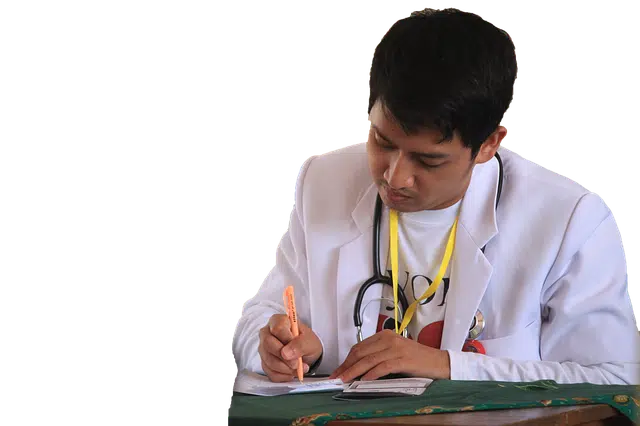
A doctor is a medical professional.
Medical is that which belongs or is part of the field of medicine . The term also refers to the professional who, after completing the necessary studies and obtaining the corresponding degree, has legal authorization to practice medicine.
The doctor, therefore, is dedicated to the practice of medicine, which is among the so-called health sciences . This group covers all the disciplines responsible for analyzing diseases and health and, at a more general level, life and death. Its objective is to develop prevention tasks and offer treatments for disorders that alter the well-being of individuals.
The doctor's work
Medical practice implies a relationship between the doctor (who acts as an active agent ), the patient (the patient or passive agent who receives the action of the first) and the disease (the link between the aforementioned parts). The current conception of health, in any case, assumes that illness is not an essential condition for a relationship between a doctor and a patient to exist, since health is known as the state that a person enjoys when they experience the well-being of the body, but also of the mind and at a social level. In other words, someone can visit a professional without being sick (for a checkup, for example).
Among the different tasks performed by a doctor (who, in everyday language, is usually known as a doctor , even when referring to people who have not completed a doctorate), there is the collection of information about the patient's condition through various tools (to develop what is known as a medical history ), the analysis of said information, the establishment of a treatment program and the education of the patient regarding their own health.

Doctors are responsible for the care and recovery of their patients' health.
The role of the Internet
Internet access has gone from being something innovative, flashy and expensive to a phenomenon that occurs daily in the lives of most people worldwide. It has transcended ages, religions and occupations, to become a necessity, whether to communicate with other people or to study, obtain information or work. The health field has also been affected, both positively and negatively, by this endless flow of information, which is growing second by second.
On the one hand, there are health centers and private professionals who offer the possibility of making an online consultation . In this way, patients whose mobility is reduced, or who do not have enough free time to travel to a clinic, or even those with symptoms that they cannot easily talk about in person, find a quick and comfortable solution to know whether or not they should worry about their condition.
On the other hand, many people do not distinguish between documented and supported information and that which is written to receive visits to a page or blog. Unfortunately, in addition to literal copies of texts, the Internet is a source of data where seriousness coexists with jokes in bad taste and lack of ethics . Therefore, it is dangerous to trust an article about a disease found at random. In fact, in no way should this replace the word of a good doctor, since in many cases in-person observation, even of minor illnesses such as a cold , serves to detect an important condition.
However, there are people who do research at home and then make an appointment with a doctor and compare the information from both sources. This represents, in most cases, a waste of time for both parties, since it is necessary to have technical knowledge, intuition and experience to understand the characteristics of the diseases and healing techniques. This is a situation that, although it seems taken from a comedy, is already part of our culture.
